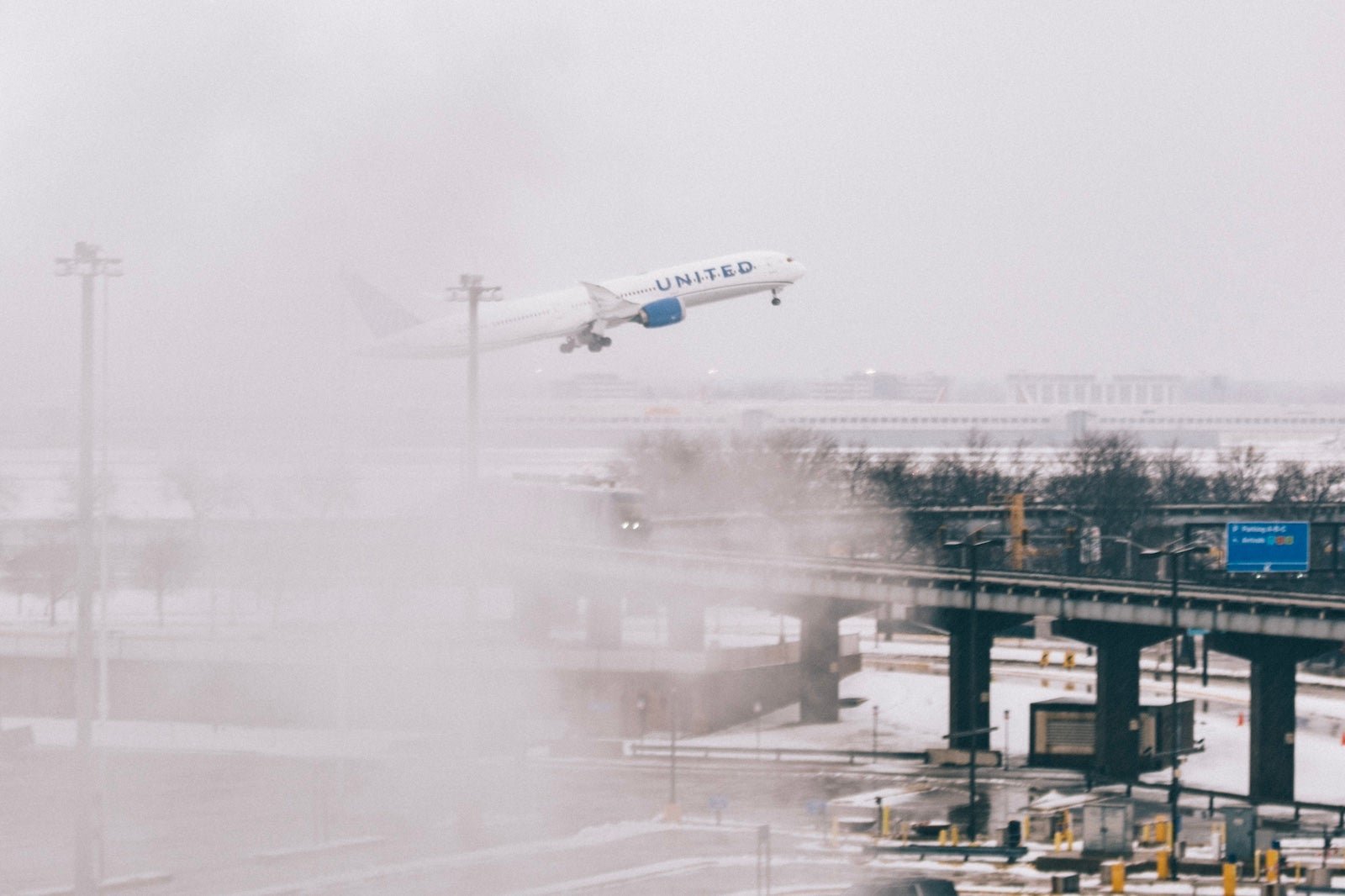Snow, ice, and bone-chilling temperatures have wreaked havoc on air travel operations across the United States as the long weekend comes to a close. The severe weather conditions have led to thousands of flight cancellations in recent days, with more than 2,000 flights scrapped on Monday alone. Major airlines such as Southwest Airlines have been significantly impacted, with 650 cancellations accounting for about 16% of its schedule. Additionally, over 680 Southwest flights have been delayed on Monday.
The disruptions are a result of heavy snowfall in some parts of the country, while others are contending with sub-zero temperatures and bitter wind chills. Southwest Airlines, based in Dallas, has experienced significant weather-related issues in its key focus cities of Chicago and Denver. Both cities have seen snow and extremely cold temperatures in recent days, affecting the airline’s operations.
Denver International Airport (DEN) leads all U.S. airports with 155 flight cancellations as of mid-day Monday, according to FlightAware data. Midway International Airport (MDW) in Chicago, another important Southwest base, has the highest rate of flight cancellations among all U.S. airports, with 30% of its Monday flights canceled.
In addition to the disruptions in Chicago and Denver, airlines have also faced challenging conditions in Texas. Dallas/Fort Worth International Airport (DFW), Houston’s Intercontinental Airport (IAH), and Austin Bergstrom International Airport (AUS) have collectively experienced more than 200 flight cancellations due to the unusually bitter weather.
Airport operations have been greatly affected by the snow, ice, and cold temperatures. At O’Hare International Airport in Chicago, the Airport Transit System, which shuttles passengers between terminals, the rental car facility, and public transit, experienced a breakdown on Sunday due to the extreme temperatures. However, it is now back up and running. Buffalo Niagara International Airport (BUF) in New York saw approximately 83% of its flights canceled on Sunday due to heavy snowfall, which prompted travel restrictions implemented by Governor Kathy Hochul. The extreme weather conditions even led to the rescheduling of a Buffalo Bills home playoff game by the National Football League.
In Texas, Dallas Love Field Airport (DAL) warned of extreme weather conditions affecting North Texas and anticipated a significant number of cancellations. In contrast, Houston airport officials praised maintenance teams for pretreating roads and runways with de-icing chemicals to maintain as normal operations as possible.
The National Weather Service has issued warnings for wintry conditions, including freezing rain, from Texas and Louisiana to the central Appalachian region and Mid-Atlantic states. As these winter weather systems move eastward, some airlines have extended travel alerts to the East Coast and Northeast, providing travelers with added flexibility to change their itineraries.
Furthermore, flight cancellations have been further compounded by the ongoing grounding of the Boeing 737 MAX 9 aircraft. United and Alaska Airlines continue to cancel over a hundred daily flights due to the Federal Aviation Administration’s grounding of the MAX 9 following a midair emergency on an Alaska flight on January 5. Alaska Airlines is still awaiting final instructions from the FAA and Boeing for inspections and maintenance required on its MAX 9s. The airline has also announced plans to increase its oversight of Boeing’s production line for 737 MAX aircraft. The duration of the MAX 9 grounding remains uncertain at this point.
For travelers with upcoming plans, it is crucial to monitor their airline’s app for any early warning signs of flight delays or cancellations. Even if the conditions are favorable at their current location, widespread disruptions can impact flights in parts of the country where the weather is clear. Checking the airline’s website for any travel alerts that may allow for changes to the itinerary at no additional cost is also advisable.
In conclusion, severe winter weather conditions across the United States have caused significant disruptions to air travel operations. Airlines have canceled thousands of flights, and major airports have experienced high rates of cancellations. The ongoing grounding of the Boeing 737 MAX 9 has further exacerbated the situation. Travelers are advised to stay informed about their flight status and take advantage of any travel alerts or flexibility offered by their airlines.

